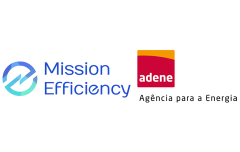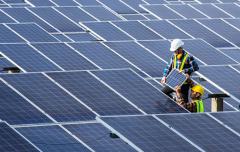Partner Spotlight: Copenhagen Centre on Energy Efficiency
In an interview with Gabriela Prata Dias, Acting Head of the Copenhagen Centre on Energy Efficiency, and Mark Lister, Senior Strategic Adviser at the Centre, we discuss the organization’s work to advance energy efficiency in countries across the world.
What is the Copenhagen Centre of Energy Efficiency's mission?
As the energy efficiency hub of Sustainable Energy for All, we’re working to create and disseminate knowledge on bringing energy efficiency actions to speed and scale, and also creating new models for deployment. We work with cities and countries around the world to help them turn their energy efficiency ambitions into reality, through technical assistance and connections with technology and service providers that can help it happen.
How does the Centre support Sustainable Development Goal 7?
We are directly working towards SDG7 given its alignment with the SEforALL goals, particularly the target of SDG7 to double the rate of energy efficiency improvement globally by 2030. Operationally, we are linked to the UN System as a collaborating centre of the UN Environment Programme and a part of the UNEP-DTU Partnership, a leading research and advisory organization established in Denmark of some 28 years’ standing. In this capacity, we are also supporting the review process for the SDGs that is underway at the moment, culminating at the UN High-Level Political Forum this July in New York City.
What do you see as the priority areas of SDG7 to help us meet 2030 targets?
We are probably biased! Clearly, energy efficiency is a big part of the solution. Indeed almost all studies point to energy efficiency as the cheapest, quickest and most widely dispersed opportunity to underpin the clean energy transition, and one which needs to do the heavy lifting if we are to meet clean energy and development targets. Increased uptake of energy efficiency brings not only a multiplier effect to renewables penetration and efforts to increase energy access but many important benefits for other SDGs, including those related to health, productivity and climate action.
What does your partnership with SEforALL focus on?
One of the key points of focus for us is in supporting the SEforALL Global Energy Efficiency Accelerator Platform. The platform is made up of six Accelerators: public-private partnerships that focus on catalytic actions in high energy use sectors, including buildings; industry; transport; district heating and cooling; lighting; appliances and equipment; and motor vehicles and transport. The Accelerators are actively supporting countries and cities to build their capacity and the enabling environment for energy efficiency actions based on best practices. We support them and SEforALL with a range of coordination functions, including technical backstopping and looking for cross-sectoral synergies.
2018 is a busy year for sustainable energy, with the SEforALL Forum, CEM and EE Global taking place in May alone. What were the highlights for you, and what else are you looking to?
As you say, May has certainly been a busy month for the Copenhagen Centre as we co-hosted the EE Global Forum in Copenhagen for the first time and brought together participants from over 50 countries to put energy efficiency first in the clean energy debate. The overall highlight is probably that we’ve created a tremendous amount of recognition and momentum with our message to think bigger on energy efficiency, the need for speed and scale, and the models we’re demonstrating to deliver this. We are looking forward to converting the interest and engagement on this topic into some concerted projects that will see energy efficiency start to deliver the impact that we know is necessary to keep SDG7 achievement on track.


